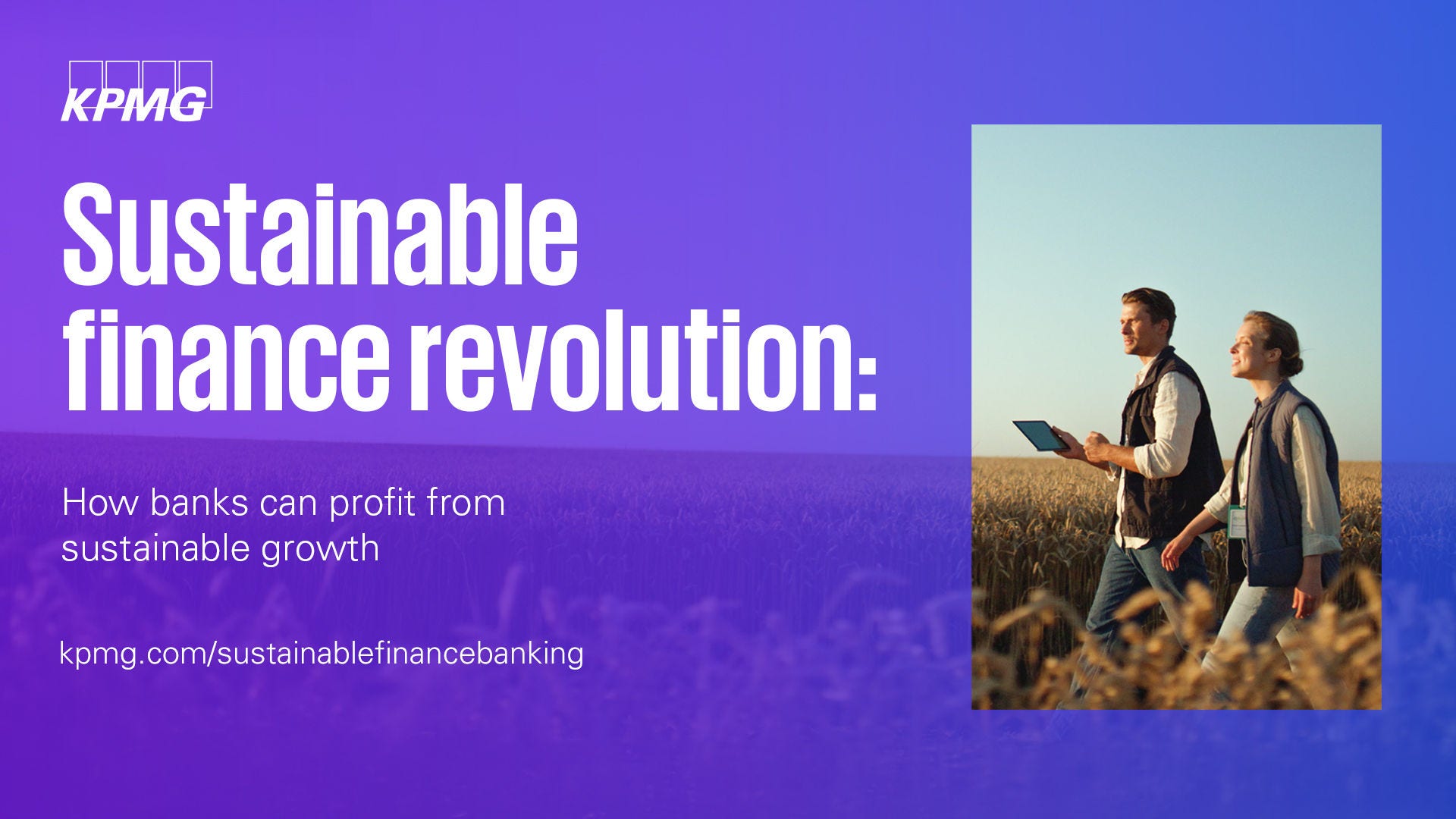The transition to a net zero economy is a pressing global challenge that requires substantial capital support from the private sector. Financial institutions have the opportunity to play a pivotal role in this transition and achieve substantial gains. By adopting a sustainability-first approach, they can mitigate risks associated with climate change and tap into lucrative markets that prioritize environmental responsibility.
The potential for economic growth through sustainable investments is immense, and the time to act is now.
Learn more about how the banking industry can position themselves for the future in Sustainable finance revolution: how banks can profit from sustainable growth.
Key themes
Key areas of opportunity
KPMG has identified four essential areas of sustainable finance that present examples of how banks can crystallize their sustainability lens. These have been identified based on their climate impacts, the importance within bank balance sheets and the difference they make to banks’ customers and stakeholders.
For detailed examples on these four areas, download the full report.









